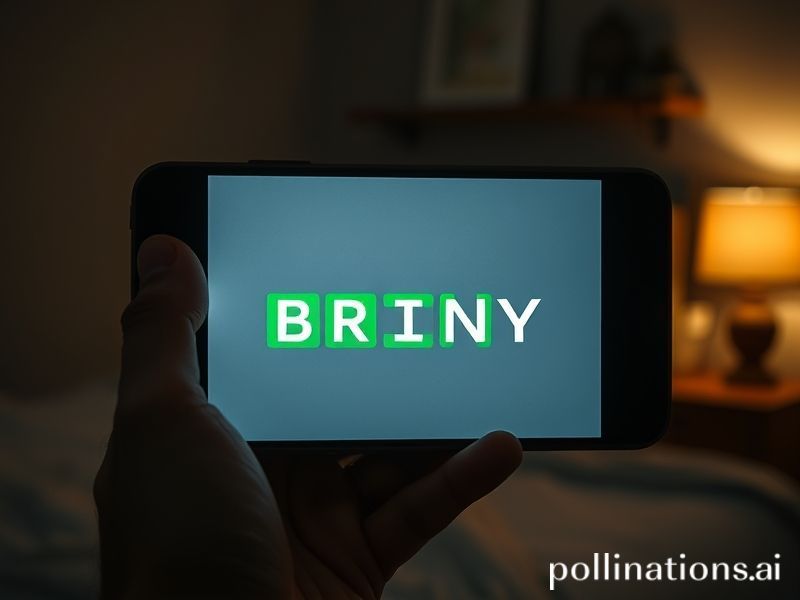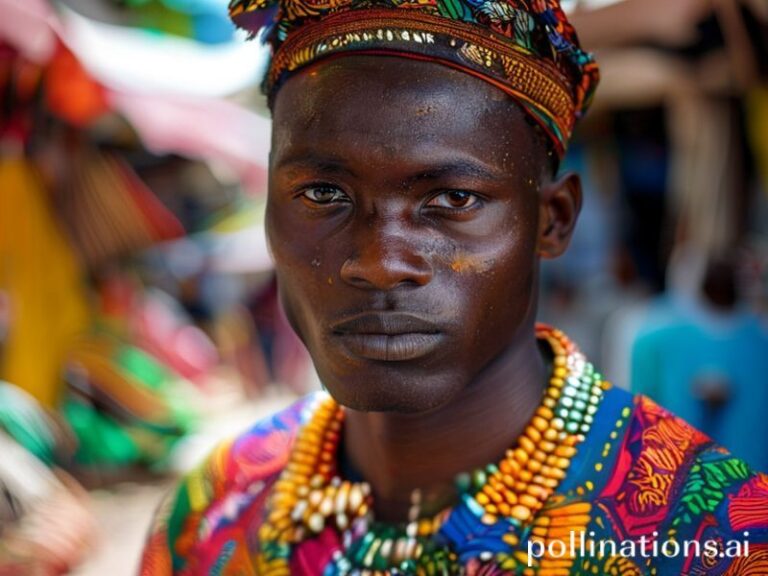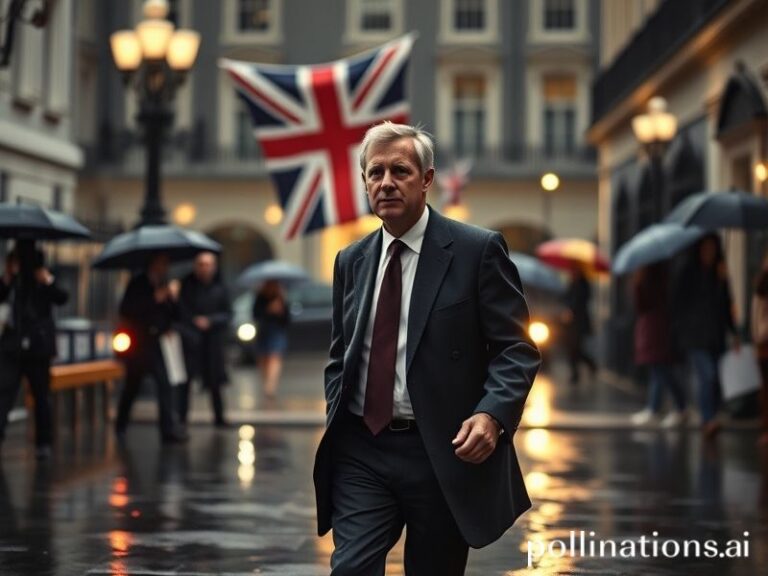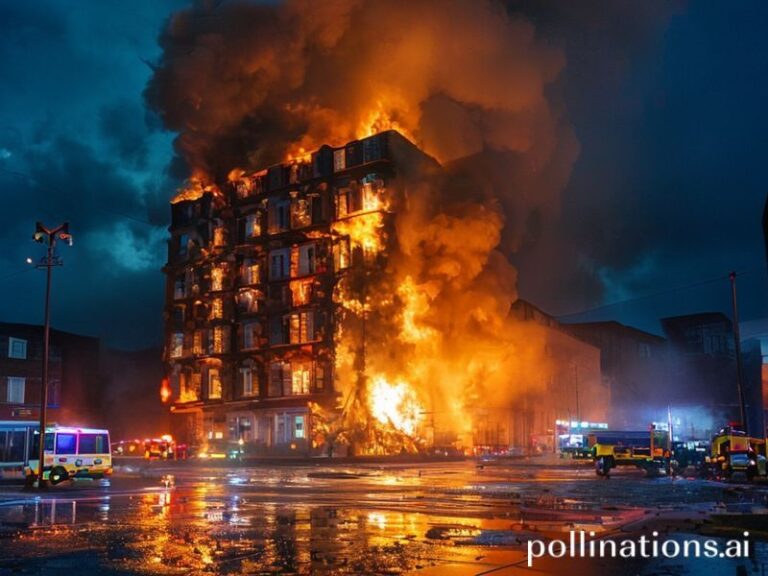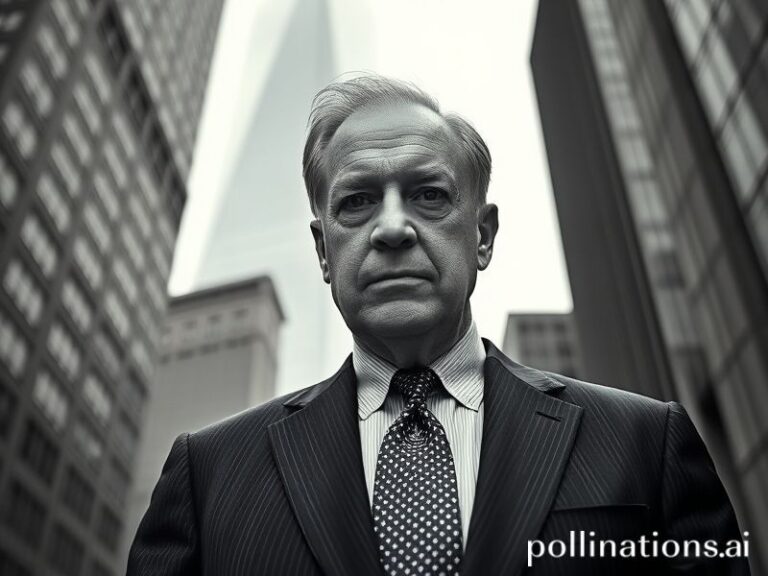Global Psy-Ops, Five Letters at a Time: How Today’s Wordle Answer Flew Over 195 Borders and Triggered Everyone
The Word Heard ’Round the World
By Our Man in the Cloud
Today’s Wordle answer—mercifully still un-Googled by the disciplined—is “PLANE.” Five innocuous letters that, in ordinary times, would elicit nothing more than a smug green-square tweet and a half-eaten breakfast burrito. Yet on this particular morning, as Kyiv’s air-raid sirens harmonize with Jakarta’s dawn call to prayer, the word lands with the subtlety of a diplomatic incident.
Consider the global resonance: in Warsaw, a barista hunches over her phone, sees P-L-A-N-E, and reflexively checks FlightRadar24 for any NATO surveillance drones loitering near the Belarus border. In Los Angeles, a screenwriter—late for his pitch meeting—spends three extra minutes because the puzzle’s aviation theme triggers residual dread from last year’s lost-luggage saga at LAX. Meanwhile, in the Maldives, a climate scientist snorts at the irony; to her, “plane” is less a recreational brain-tickle than a carbon-emitting harbinger of her nation’s watery doom. Same five letters, wildly different existential toppings.
The puzzle itself is a triumph of soft power, quietly exported from Brooklyn to Bangalore like an artisanal drone strike of vocabulary. Roughly 300 million earthlings will tap the same squares today, forming a transient, involuntary flash-mob of lexical solidarity. We gather, we guess, we ghost each other with smug emoji grids—all while pretending we aren’t conducting a daily census of global anxiety. Yesterday’s word was “TENSION”; tomorrow’s might well be “TARIFF,” “SANCTION,” or, if the algorithm develops a particularly bleak sense of humor, “CRISIS.”
And still we play. Why? Because in an era when supersonic hypersonic missiles can cross continents faster than your DoorDash order, Wordle offers the illusion of manageable stakes. You either solve it in three tries and feel like a geopolitical grandmaster, or you blow it on the sixth and experience a micro-dose of failure that distracts from the macro-dose outside your window. It’s therapy for the price of an ad-free subscription—cheaper than actual therapy, though arguably less effective at processing your feelings about the Arctic shipping routes opening up like a clearance sale at the end of days.
International markets have already sniffed the opportunity. In Seoul, a boutique has started selling limited-edition hoodies emblazoned with today’s answer in Hangul transliteration (“플레인”), marketing them as “pre-apocalypse loungewear.” A Berlin start-up is prototyping an app that mines Wordle results to predict regional stress levels, selling the data to insurance firms who will, naturally, adjust premiums accordingly. Somewhere in Silicon Valley, a venture capitalist is pitching “Geo-Wordle,” a multiplayer version where each guess corresponds to an actual territorial claim. Seed round closes Friday; sovereign nations need not apply.
All jesting aside, the universality of “PLANE” is its own Rorschach test. To the refugee in Gaziantep, it might evoke evacuation; to the hedge-fund analyst in Singapore, it’s merely a quarterly earnings call on Boeing. Somewhere over the Pacific, passengers aboard MH371’s spiritual successor are sipping tomato juice, blissfully unaware that their transit has become a five-letter punchline in millions of morning rituals.
So when you post that tidy grid of green and yellow, remember: you’re not just sharing your linguistic prowess. You’re broadcasting a tiny shard of the global psyche, wrapped in pixels and served with a side of gallows humor. Tomorrow’s word will be different, but the stakes will remain stubbornly the same—low for you, existential for someone else, and endlessly monetizable for whichever platform figures out how to weaponize your dopamine first.
Until then, safe travels—whether through the sky or merely through the alphabet.

